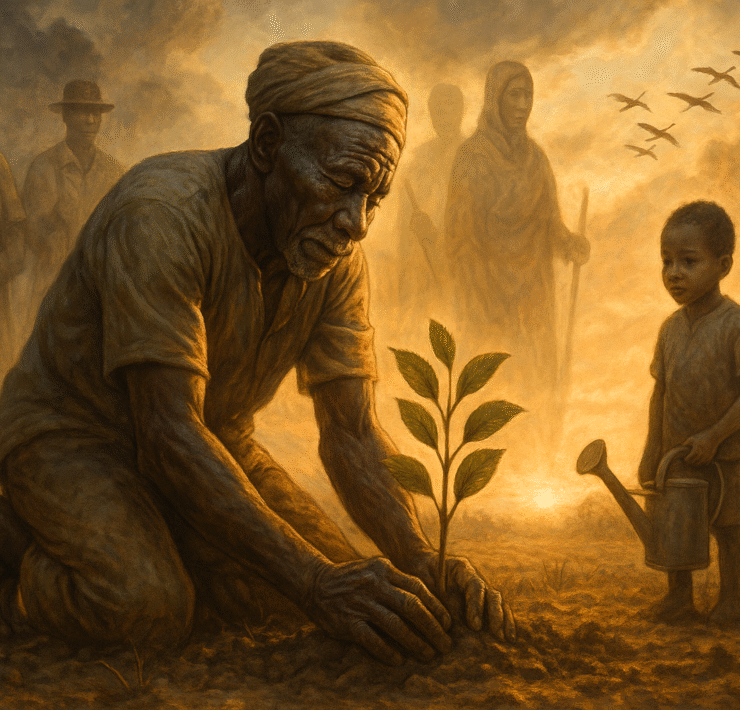What is Capitalism?

Rutendo Bereza Matinyarare was born in Zimbabwe but he lives…
“In a nutshell capitalism is a legalized form of theft or corruption by the elite”.
It’s a privilege based system in which a few, select individuals get the license to own public resources: human labor, minerals, land, wildlife, livestock, radio frequencies, time, freedom, choice, thoughts, dreams, ideas, water, seeds, trees, human beings, birds, pathogens, food and any other public goods that can be harnessed at the expense of the majority for the profit of those few individuals.
Many writers have advanced the argument that economics practice by its very definition is a science concerned with the control and distribution of scarce resources, and it was this science that was the major instrument used to institute this system of inequality known as capitalism, in order to create conditions where the majority have no other means (resources/factors of production) to survive but to sell their labor to owners of capital and industry at the cheapest possible price.
Such a reality gives credence to the theory that a few people run the world and we are all but slaves to make them profit as their cheap labor and captive market for their goods, all at once.
In essence capitalism is the expressed manifestation of legalized oppression, exploitation and corruption.
Where Did Wealth Come From?
Unfortunately, what most economists fail to address in giving their definition of capitalism, is how the capital class acquired the initial capital to start their enterprise in a world where, at some point, all men were equal freemen on land where no individuals had ownership or title to any resources.
Most economic theory mischievously skips this question to start its postulations on the premise that previously accumulated capital/wealth accumulates more wealth by being invested into production, without outlining the origins of that original wealth that is now being employed.
But without a full understanding of the origins of capital, capitalism’s claim of being an axiomatic progression of the free market becomes questionable.
How Did Poor Men Accumulate Wealth or capital?
The hesitation to clear the question of where those with capital got their wealth or capital is simply because, historically, capital was not accumulated by means of economic science but shear brutality, theft or what is known as primitive accumulation by violence, war, policies and the same biased laws used by the corrupt elite today.
It‘s a process that was greatly influenced by economists or what they called political economists, to give their noble sponsors control over resources that belonged to the public, commons or communities, for their private use and their enrichment.
This period of violent expropriation was the window through which, the powerful accumulated control of public resources for free, thus depriving the masses of the ability to provide for themselves to force them to become cheap labor for those who had accumulated the factors of production or capital.
During this time, the economist ascended in status to the position of the elite, because they had successfully driven the development of a new social and economic order by transferring billions of pounds of wealth and economic power from self-sufficient farmers, artisans and hunters, into the hands of capitalists, thereby turning these self-sufficient peasants into cheap labor for the capitalist.
Economists Ascend In Occult Order
In the forefront of this cult were political economists like Adam Smith, Beacon and Francis Hutcheson, who were used to push the creation of industry and to ensure that industry had a steady supply of cheap labor and captive customers with no competing products to substitute what industry was producing.
It therefore comes as common cause, that this industrial economy would never have been possible had the masses continued to cultivate their own crops, raise their own animals, fishing and hunting, while those with artisanal skills persisted with producing their own superior handcrafted tools, equipment and products for survival.
The Beginning Of Industrial Employment
According to history, in seventeenth century European society, people didn’t go to work formally. Instead, they worked the fields of their landlords for a few hours a week, then worked their own patches for a few hours and harvested enough to spend the reminder drinking and living relatively comfortably.
Those who lived in the commons stayed home where they had lots of time on their hands to cultivate their patches, think, innovate, hunt, fish, drink and use some of their output from the fields or animals to produce clothes, shoes, wood work, tools and other valuables they could barter with others.
According to studies done by political economists of the time in France, Germany and the United Kingdom, anything over 1/17th of an acre of land, was adequate enough to give a peasant enough food to feed a family of six for more than a year.
All this was deemed inimical to the industrial and capitalist economy that was being birthed. So, to ensure that labor was constantly available for industry, laws and political economic theories to deny people access to land, game and water rights were formulated by the leading intellectuals and implemented by lawmakers in short order.
End To Hunting And Artisanal Jobs
The first move was to put a nail at the heart of self-sufficiency by the outlawing hunting, fishing, gun ownership and access to commons (communal lands used by the commoner).
This was designed to push peasants into landlord owned properties in the city, while land owners were encouraged to fence off wild animals as private game and to raise rents to force peasants into cities where they would work in industry for long hours to earn enough for rent and food.
To enforce the system of employment for survival, taxes were levied on all people and those who couldn’t pay taxes, those without work and accommodation were summarily criminalized, rounded up and imprisoned.
With this, peasants could no longer feed themselves by growing their own food, fishing or hunting. They now had to buy their food from farmers markets and stores.
Products like shoes, woodwork and other artisanal products, now had to be bought from the factories that were producing them as peasants no longer had time to produce them.
This was the end of self-sufficiency for the peasant, the destruction of many artisanal skills and the creation of dependency on industrial monopolies that survive off exploiting labor.
Fraud By Economic Theory
To bring this system into effect, economists wrote rims of theories and philosophies on the virtues of a hard day’s work and dangers of idleness to influence policymakers and nobles. They even encouraged the employment of children as young as 4yrs of age and for people to work up to 12 hours a day in industry and landlord fields.
Once the normal work hours were done, peasants were to be given tasks to accomplish at home like knitting, weaving and tapestry to keep them occupied and productive to prevent indolence (laziness).
The truth of the matter is capital owners and the nobility wanted to stop peasants from thinking of creating their own products or fighting the political changes coming into effect in Europe, so the system kept them occupied.
The whole concept was designed to keep people occupied, socializing them to become accustomed to working for a living and producing output for industrialists instead of themselves.
Africa In Capitalism.
By the time capitalism came to Africa in the form of slavery and colonialism, it had been sharpened and perfected in Europe for almost two centuries, to a point of ruthless efficiency.
European economists and politicians had turned primitive accumulation into an established science through policies, institutions and systems that expropriated generally abundant resources from the poor and put them into the control of elites who created scarcity to generate higher returns.
It’s for this reason why there was no remorse in the way Africans were treated during the primitive accumulation of slavery and colonialism because as labor resources their efficient exploitation for profit, superseded their humanity.
Capital Over Innovation.
Over time, as industrialists got richer, capital became more important than skill as capital, technology and economies of scale allowed cheaper products to be made through industry.
This then became a barrier to entry for competition from artisans and hand craftsmen who made more expensive products, thus leaving only an opening for other capital owners with the industrial capacity to compete.
Yes, products became cheaper but the market lost variety, innovation, creativity and quality as a lot of really creative minds were put to work in rudimentary, monotonous production in the new factories that sprang up.
Another trend emerged in this period; Capital consolidated in banking and killed competition as capitalists linked by investments in banking, started colluding through cross shareholding, institutional investment, value chains, loans, cross directorships and industry combines.
Very little has changed between 1600 and 2017. In fact, the capitalist system is so well entrenched and capital has become the critical success factor that the masses have no chance to compete with the oligarchies and their monopolies unless they create combines (cooperatives) against industry.
In conclusion, the system of accumulating resources above (otherwise known as capitalism) is precisely the definition of corruption, which is why Africans who advocate for the end of corruption while holding onto capitalism are unlikely to end corruption because capitalism is the bedrock of corruption.
The above story also goes a long way to illustrate that by the common Zimbabwean being given access to land and mineral resources to produce, the system of capitalism was in many ways reversed in Zimbabwe, hence such a model is seen as a threat to the architects of the capitalist system because it can only survive by exploiting African resources.
What's Your Reaction?
Rutendo Bereza Matinyarare was born in Zimbabwe but he lives in South Africa. He studied marketing and project management, but now works as a full time Afrikan social engineer. His life's creed is captured in his words: "As a man I seek to die having fulfilled my destiny to humanity, not having consumed much.” He is the founder of Frontline Strat Marketing Consultancy.

















